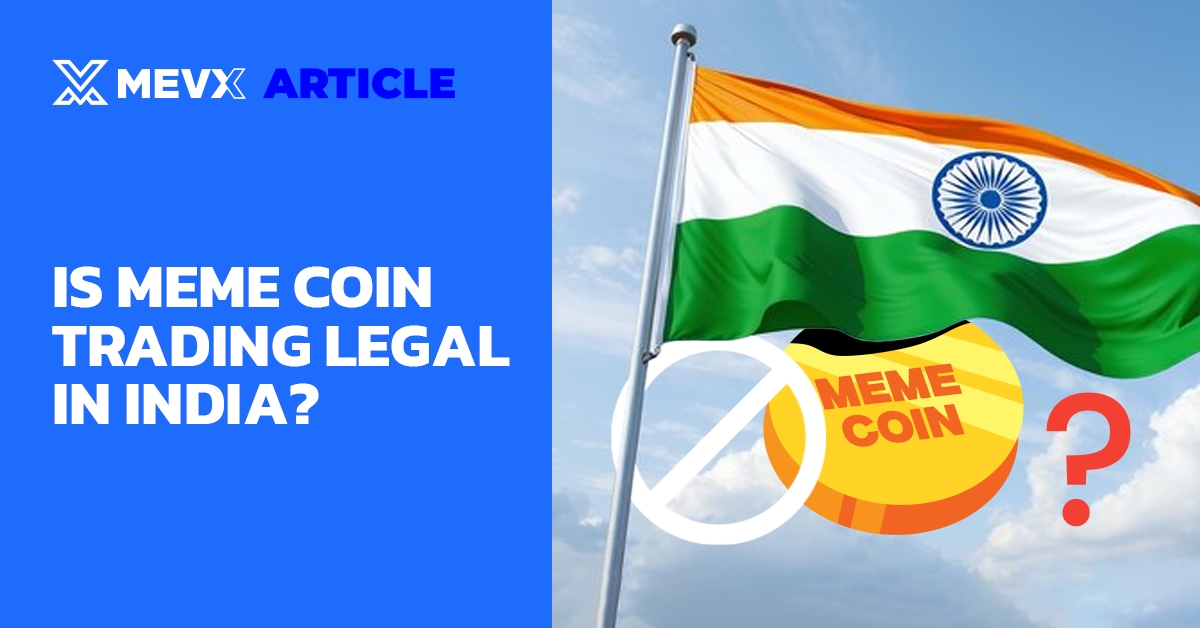Is Meme coin Trading legal in India?
The short answer is yes, but it exists in a legal grey area, not under a specific law. While there is no explicit ban on trading memecoins, this activity is not officially regulated or recognized as a legal financial instrument. This lack of a clear legal framework means that Indian traders can engage in memecoin transactions, but they do so without the official protections and legal recourse that are available in regulated financial markets. The government and the Reserve Bank of India (RBI) have expressed strong reservations about the risks associated with decentralized digital assets, but they have yet to establish a comprehensive regulatory framework.

A Legal Vacuum – Is Meme coin Trading Legal in India?
Unlike some jurisdictions that have imposed outright prohibitions, India has not issued a specific ban on memecoin trading. This has led many to believe that the activity is implicitly legal. However, this is a dangerous assumption. The legal status of memecoins, and cryptocurrencies in general, falls into a “grey zone.” While the Reserve Bank of India (RBI) and the government have expressed strong reservations about the risks associated with decentralized digital assets, they have yet to establish a comprehensive regulatory framework. This lack of clarity means that while you can trade memecoins, you do so without the explicit legal protections afforded to other financial assets.
A Look at the Existing Framework
Although there are no memecoin-specific laws, traders are subject to broader financial and taxation rules. The most significant development to date is the implementation of a 30% tax on income from the transfer of virtual digital assets (VDA), coupled with a 1% Tax Deducted at Source (TDS) on payments made for VDA transfers above a certain threshold. These tax rules, introduced in the Finance Act 2022, effectively legitimize cryptocurrencies as a taxable asset class without granting them legal tender status. This means that every profitable memecoin trade is a taxable event, and investors are legally obligated to declare their gains and pay the required taxes. Failure to comply can result in severe penalties.
Risks and Warnings for Investors
The legal ambiguity surrounding memecoins exposes investors to a number of significant risks:
- Lack of Legal Recourse: In the event of a scam, hack, or market manipulation, investors have virtually no legal recourse. Unlike regulated financial markets where investor protection mechanisms exist, memecoin traders are left to their own devices.
- Regulatory Uncertainty: The government’s stance on cryptocurrencies can change abruptly. A sudden regulatory shift, such as a complete ban or stricter regulations, could lead to a market collapse, leaving investors with significant losses.
- Scam and Fraud Risk: The decentralized and unregulated nature of the memecoin market makes it a fertile ground for “rug pulls,” “pump and dump” schemes, and other fraudulent activities. The absence of official oversight means that bad actors can operate with impunity.
Recommendations for Indian Meme coin Traders
Navigating this complex environment requires caution and a strategic approach. Here are some key recommendations for those looking to trade memecoins in India:
- Use Reputable Exchanges: Trade only on well-established and compliant cryptocurrency exchanges that have a track record of security and transparency. These platforms often implement KYC (Know Your Customer) and AML (Anti-Money Laundering) procedures, which offer a layer of protection.
- Comply with Tax Obligations: This is non-negotiable. Maintain meticulous records of all your trades and consult with a tax professional to ensure full compliance with the VDA taxation rules.
- Conduct Thorough Research: Before investing in any memecoin, conduct thorough due diligence. Scrutinize the project’s whitepaper, community, and founding team. Be wary of projects that promise unrealistic returns.
- Invest Only What You Can Afford to Lose: The memecoin market is highly volatile and speculative. Treat it as a high-risk investment and only commit a small portion of your portfolio.
While the absence of an outright ban on memecoin trading in India may seem like a green light, it is more accurately a yellow light. The legal grey zone, coupled with a growing push for regulation, necessitates a cautious and informed approach. By understanding the existing legal framework, acknowledging the inherent risks, and adhering to best practices, Indian traders can navigate this speculative landscape more safely.
Trading memecoins requires a deep understanding of market dynamics and a robust strategy. Read more expert insights and analysis on the MEVX Blog.
Share on Social Media:
